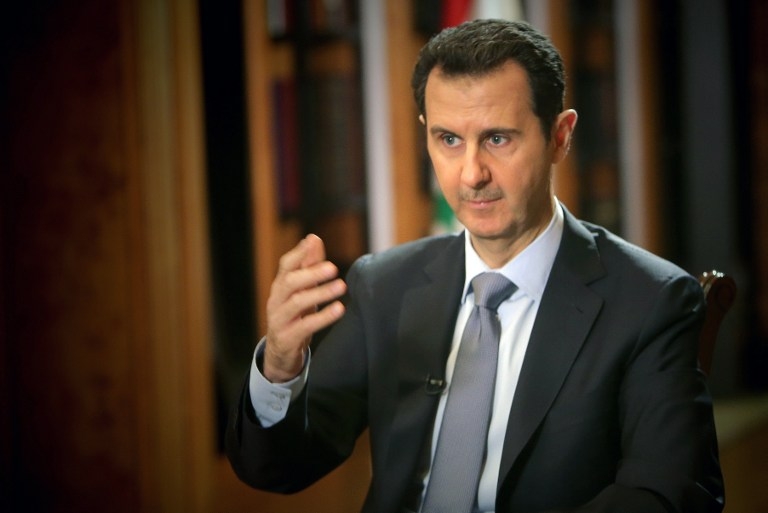Syria's Assad, unwavering war leader convinced of victory

Syrian President Bashar al-Assad, who is expected to clinch re-election effortlessly next week, believes he has saved his regime from a brutal three-year insurgency, despite international isolation and calls for his departure.
Assad, 48, came to power in 2000 with the reputation of being a modernist after the death of his father Hafez, who developed the rigid military-political system his son inherited.
But any hopes of change have long since evaporated, with a conflict that has now killed more than 160,000 people and wrought massive destruction on the country showing no signs of abating.
Assad has declared several times that he will never let go of power whatever the price. Experts say presidential elections, set for early next month, will be used to show that he has a mandate from the people to continue his campaign against his opponents.
"He wants to show by organising this election on time that he is the guarantor of the institutions that his adversaries want to destroy," one of his confidants told AFP. "He is convinced that despite the uproar, he is the only Arab head of state to have stayed at the helm."
New MEE newsletter: Jerusalem Dispatch
Sign up to get the latest insights and analysis on Israel-Palestine, alongside Turkey Unpacked and other MEE newsletters
A win may also embolden him to take steps unthinkable when the regime was reeling from heavy losses inflicted in 2012. Amongst former residents of Aleppo, who fled the country to escape the war, for example, there are recent unverifiable reports that the properties they left empty will be given to refugees as the president's forces take control of more neighborhoods in the city.
Confronted with an Arab Spring-inspired revolt calling for political change in March 2011, Assad opted to unleash a massive security crackdown, fuelling what swiftly turned into a full-blown insurgency.
Behind his relaxed and courteous demeanour, he harbours an unwavering determination to crush the rebellion which he insists is "manipulated" by foreigners.
He has presented the uprising against his regime as a conspiracy orchestrated by the West and the Gulf monarchies to smash the "chain of resistance" against Israel, in which Syria is a key link.
"Fleeing is not an option . . . I must be at the forefront of those defending this country and this has been the case from day one," he told AFP in January.
Despite a UN human rights inquiry indicating that he authorised war crimes, Assad said his troops had never massacred civilians since the conflict began, while accusing rebels of "killing civilians everywhere".
Faced with the biggest threat to his rule, in August 2013, when US forces were poised to launch military strikes in Syria, Assad kept his nerve, even receiving foreign journalists to make his case.
'Fruits of old alliances'
Some advisers say the Syrian leader has never doubted victory, even when his forces looked downtrodden early on in the conflict.
"Assad has consolidated his position. The presidential elections will be held to show that he is in full control of the regime-held areas," said Volker Perthes, director of the German Institute for International and Security Affairs.
The presidential poll is theoretically the first in Syria in more than 50 years, with he and his father Hafez al-Assad, who ruled with an iron first from 1970 to 2000, renewing their mandates in successive referendums.
The vote has been dismissed as a "farce" by the Syrian opposition and a "parody of democracy" by the United States.
The ophthalmologist by profession was only 34 when he became president, and initially earned a reputation as a modernist, launching economic reforms.
As the violence escalated, however, he became increasingly isolated with Western leaders, and even Syria's one-time ally Turkey calling for him to go.
But he has been sustained by the alliances forged by his father, notably with Russia in the 1970s and Iran in the 1980s, when Syria was the only Arab nation to support the Islamic republic in its war with Iraq.
The Lebanese Shiite group Hezbollah, staunchly supported by Damascus in its opposition to Israel, has sent thousands of fighters to back Assad's forces against rebels seeking his overthrow.
"Today he is gathering the fruits of these alliances," said Souhail Belhadj, author and academic at the Graduate Institute of International and Development Studies in Geneva.
Middle East Eye delivers independent and unrivalled coverage and analysis of the Middle East, North Africa and beyond. To learn more about republishing this content and the associated fees, please fill out this form. More about MEE can be found here.

